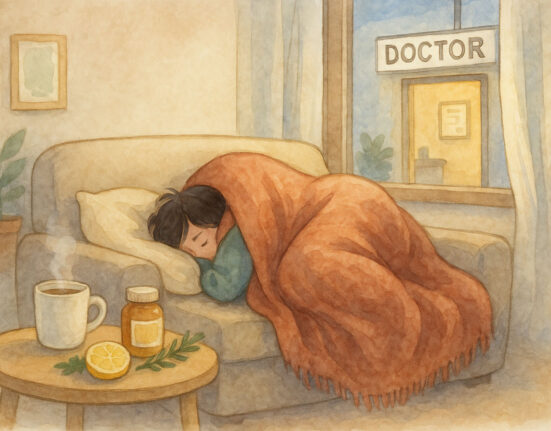Our inbuilt survival system doesn’t care whether you’re happy or sad. It just wants to keep you alive. And that’s hard work when we are floating in a collective fear-soup and our brains are overwhelmed. We have two smoke alarms in our brain. These ‘amygdala’ are constantly on the lookout for life-threatening danger. They don’t think, they scream. The thinking is done from the control centre, the pre-frontal cortex.
Imagine a random Monday morning in my brain. The amygdala are firing; “buy this serendipity night cream or you will look old,” adding, “and you will die.” And hot on the heels of that message, “voting labour means Russia will invade all of Europe and we will all die.” The neurons receiving these messages in my pre-frontal cortex smile gently; “she must be reading the Daily Mail again.”
But as I, as we, continue reading the newspapers, scanning social media, listening to the radio, we are bombarded by messages of doom and gloom. Because fear sells. The fear of growing old makes you buy that cream, the fear of war makes you vote for that party, the fear of being out of control makes you want to believe the conspiracy theorists. Better to believe in something than to feel helplessly afraid. It takes great discipline to keep on top of this toxic collective fear. And when we are stressed, mental discipline is the first thing that goes out the window. And that sets the scene for an inner fear take-over.
The deadline for vacating my home draws closer but I haven’t found a new home. I feel my tension building into fear and the urge to do something, anything to avoid becoming homeless. I tell myself I can always rent or stay in a hotel. Yet the churning in my tummy continues. I realise I need to gently interrogate my fear. As the daughter of a naval officer, I moved every three years, and I was never in control of the outcome. The trembling self-part that is now triggered, is the one that hated feeling helpless and unsure of the future.
Fear is like a frightened child that wakes in the middle of night shouting that the house is on fire. If you reassure it and tell it to go back to bed, either your house will burn down, or the child will be back at your bedside in minutes. Reassurance doesn’t always reassure. I know I won’t be homeless, but my fear-self just needs a little support in feeling helpless. Otherwise, in a bid to feel certainty, she could kidnap the system and rush ‘us’ into a decision. Yet, there are also times when our fear really does demand action. And without listening, you will never know the difference between the two.
Mariska suddenly developed a fear of speaking in meetings. Just thinking about an upcoming meeting became an adrenaline charged ‘poke in the gut’. At first it was just minutes, then hours, then days before an important meeting. In the first session she dismissed her fear and said, “I’m being silly, no one will fire me, even if blank out.” But that rational answer wasn’t the one that her fear needed to hear. It got worse. While starting breathing exercises, we also gently explored her fear-self. Over many sessions and sometimes reluctantly, she discovered a self-part that stood for her moral compass. It turned out her company was acting unethically, and her fear response was asking her if she wanted to continue compromising herself.
Our survival system is created to act in the moment. In an emergency, the control centre assesses the prompt from the amygdala; can I fight it, do I need to flee it or is freezing the only option left to survive? In the case of fight or flight, our bodies are then flooded with stress hormones that aid the process. But if the only survival option is to freeze, our brain is taken offline. We collapse into a numb zombie-like state, either preparing for death or to survive the onslaught until it is over.
However, long term stress and denying healthy fear prompts, creates an overheated, burnt-out control centre and leads to a permanent brain freeze. Your life might not be in danger, but your mental wellbeing is. And a frozen mind always thinks in absolute black and white scenarios. You will never work again, you will be homeless, you will never find another partner. It’s a great tell!
Rather than ‘fight’ the situation at work, or ‘flee’ the toxic relationship, a frozen brain constructs narratives about why we have no choice but to remain in a position that is psychologically unhealthy. And then we wonder why we are feeling so anxious all the time. Indeed, once we heard my client’s fear-question correctly, her stressed brain shouted; “leave your job and you will end up poor and without a career”. It took a combination of mind relaxing exercises, careful listening, and great courage, to finally accept the message and embrace the consequences. Mariska now speaks freely at meetings, even when her path crosses that of her former colleagues.
Try listening to your fear with an open, non-judgemental mind. Develop healthy mind relaxing habits. Accept and embrace your human helplessness. And build some critical barriers to counter the persuasive techniques of the toxic fear cycle. You have an amazing capacity to survive, whatever life throws at you!
Lysanne Sizoo, international Mental Health specialist
With over two decades of experience, Lysanne Sizoo specializes in assisting expatriates, international professionals, and global nomads facing mental health challenges. Her professional journey has taken her to the United Kingdom, Sweden, New Zealand, and the Netherlands. In 2023 she relocated from Holland back to Stockholm for the second time around and meets clients both online and in her office on Södermalm.
Living away from one’s native country comes with its unique set of psychological hurdles, alongside the everyday ups and downs of life. This holds true for global nomads, cross-cultural adults, and children alike.
In these articles Lysanne writes about the different challenges that face us in life, as expats and as ordinary human beings. She uses her own experience as a jumping off point for reflections on how to use the lessons from therapy to live a more contended and congruent life.
If you have specific topics or issues that you’d like Lysanne to explore in her articles, please reach out via the contact form on this website or directly through her personal website. Rest assured, your privacy and confidentiality will be upheld.













